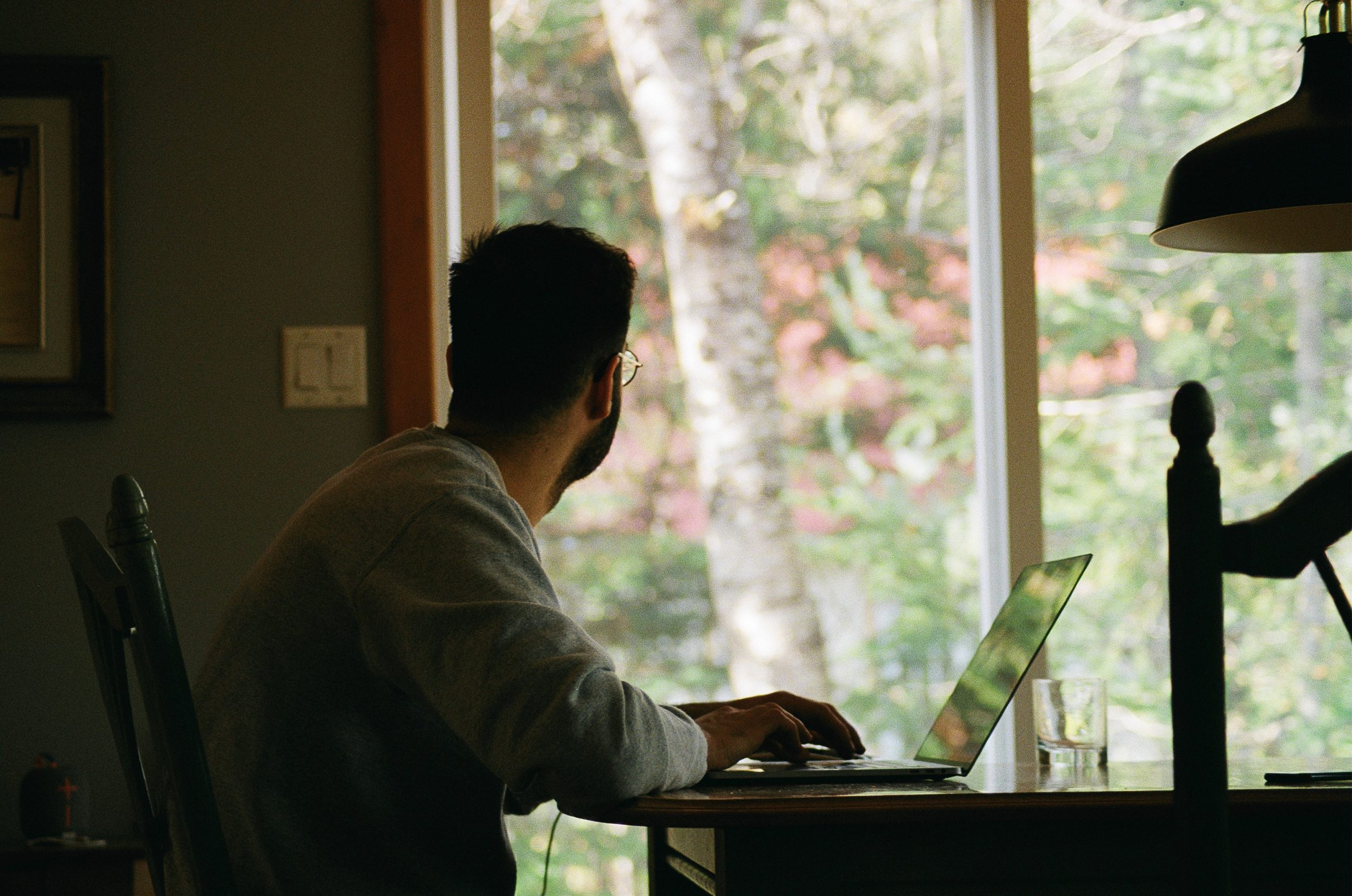How to Stay Calm in a Competitive Environment


“Competitiveness and stress are ubiquitous.
In school, in the workplace, and in our social networks, we compete for attention, recognition, promotion, and dominance”
(Zhong et al., 2018).
The Technological Era: A Carousel
How many of you are glued to your cell phone? Our steady companion, that walks through life with us, from the minute we wake up to check the time and read some messages, to reading the news during our morning cup of coffee, listening to podcasts and music on the way to work, to scrolling through social media feeds in the bathroom, brushing your teeth or sitting on the toilet. We reach for our phones with thousands of different impulses on a daily basis throughout almost any life situation.
We are in the middle of the technological era and transforming into a digital global society where most of our life takes place online. Technology is part of our everyday and allows us to receive high volumes of information 24/7 from almost every region of the planet. Whereas this has many positive aspects, such as connection with other human beings, access to a wide range of knowledge, and staying in close contact with your loved ones, it also brings a variety of challenges along with it.
Many of us, I’m sure, know about the one-week-without-social-media-challenges, which ask the individual to stay away from Facebook, Instagram, Snapchat, Twitter, TikTok, and so on in order to reconnect with oneself. This implies that there’s a trend where many of us feel lost in the digital world, losing connection to the current, physical moment. Particularly for those of us who didn’t grow up with unlimited access to WIFI and when almost no one owned a smartphone, we may find ourselves reflecting on what seemed like an idyllic childhood. Instead of scrolling, we occupied our time with other activities. Maybe that meant running about the neighborhood, asking other kids to play outside until the sun went down. Or, perhaps that meant reading a book or playing with pets, or learning an instrument. Who else remembers those sweet days?

As widely discussed, technology and especially the use of social media, carries the threat of constant comparison when it comes to our personal achievements, physical appearance, and life in general. Insidious thoughts like: Am I good looking enough? Or, do I wear the right clothes? Or, is my work hip and modern? Or, how can I refinish our apartment to resemble that of a New York City loft or a Malibu beach house? Or, where is the closest Starbucks to get my morning cup of coffee exactly like users “X” and “Y” do every morning? These kind of thoughts force us, in a way, to change our behavior and lifestyle so that it resembles what appears to be fun, depending on how others are displaying it online.
But, to be fair, competition isn’t new and it’s long been ingrained in our societies. While we we have the opportunity to compare every facet of our being with all other online users, this is also true for perceived competition and thus we see comparison in the workplace, between family members, friends, and neighbors. Other examples are participation in sport tournaments, applying for job positions, or spots at universities. What about working toward being promoted in a current workplace or navigating a business through a highly competitive market?
Our Well-being
The Oxford University Press mentions the term “competitive stress” relating it to an athlete that feels threatened by expectations set upon them during a competition in comparison to what their personal beliefs were about their own capability during these competitions. And while this is true in sports, it’s also applicable to any life situation in which you worry about your ability, being enough, or performing better than others.
Experiencing extreme pressure puts our body and mind under stress. Some may start feeling their heart rate increasing, their skin flushing, their palms going slick, or body temperature rising seemingly every second, accompanied by a cold shudder. I’m always amazed when seeing people who seem to stay incredibly calm in situations of extreme pressure and stress, sipping their coffee while any supply of caffeine in my system would lead me to jump up and down in a frenzy. These people appear to be calm personified, making jokes, having conversations here and there. It seems to me that they’ve managed to develop a peace of mind and mental balance despite these demanding situations, mastering their stress levels in their own unique way.
Being in situations of competition and thus a high volume of stressors usually associated with anxiety and fear, can impact our well-being in many ways. We may treat our physical bodies differently, for instance, developing unhealthy coping mechanisms like excessive smoking or not getting enough sleep. We may also notice changes in our overall energy levels. That’s why it’s important to check in with ourselves, asking: How do I feel right now? How’s my mental health? How are my interpersonal connections?

Reentering Competitive Spaces with Peace
The question is, how can we step out of this space of competition and find our place of serenity? Here are a few easy tips that you can introduce into your daily routine in order to step into a space of self-love and self-compassion, and self-connection, before entering back into the game again:
Here are a few exercises, I have learned over the last years:
- Don’t fight against it. When you feel your stress levels rising, practice not pushing against it with all your might, but instead try to accept that it’s there, breathing into it and using this push of adrenaline in a positive way, rather than navigating into a space of insecurity and fear.
- Consciously focus your awareness on your breaths, allowing new oxygen to enter your brain.
- Laugh it out. Some people I’ve met swear that making jokes and laughing can help bring the nervous system back down to calm, releasing stress hormones in your body.
- Hydrate to be great. Drink lots of water to stay hydrated and to nourish your body.
- Before entering a competitive environment, take a few moments for some meditation, mindful walking, music, or whatever else helps to be present in the moment and feel your body fully.
- Meeting yourself from a space of love and self-compassion. Taking some time to remind yourself of who you are, what you bring to the table, and shift focus toward yourself rather than the external environment.
- Practice gratitude, reminding yourself at different times throughout the day what you’re thankful for in life and what you value about yourself.
- Make space for self-care rituals: A cup of tea in silence? A few pages of a good book? A warm shower or long bath? Some yoga practices in the morning or evening? Journaling to get your thoughts on paper? Emptying your mind through meditation? Walking in nature?
- Scheduling a few minutes every day, even if it’s just a minute or two, to allow your body and mind to relax, to step out of the constant rush of life. Just for a few moments, close your eyes, imagine your happy place, and take deep breaths, reconnecting to your body and grounding yourself in the present moment.
